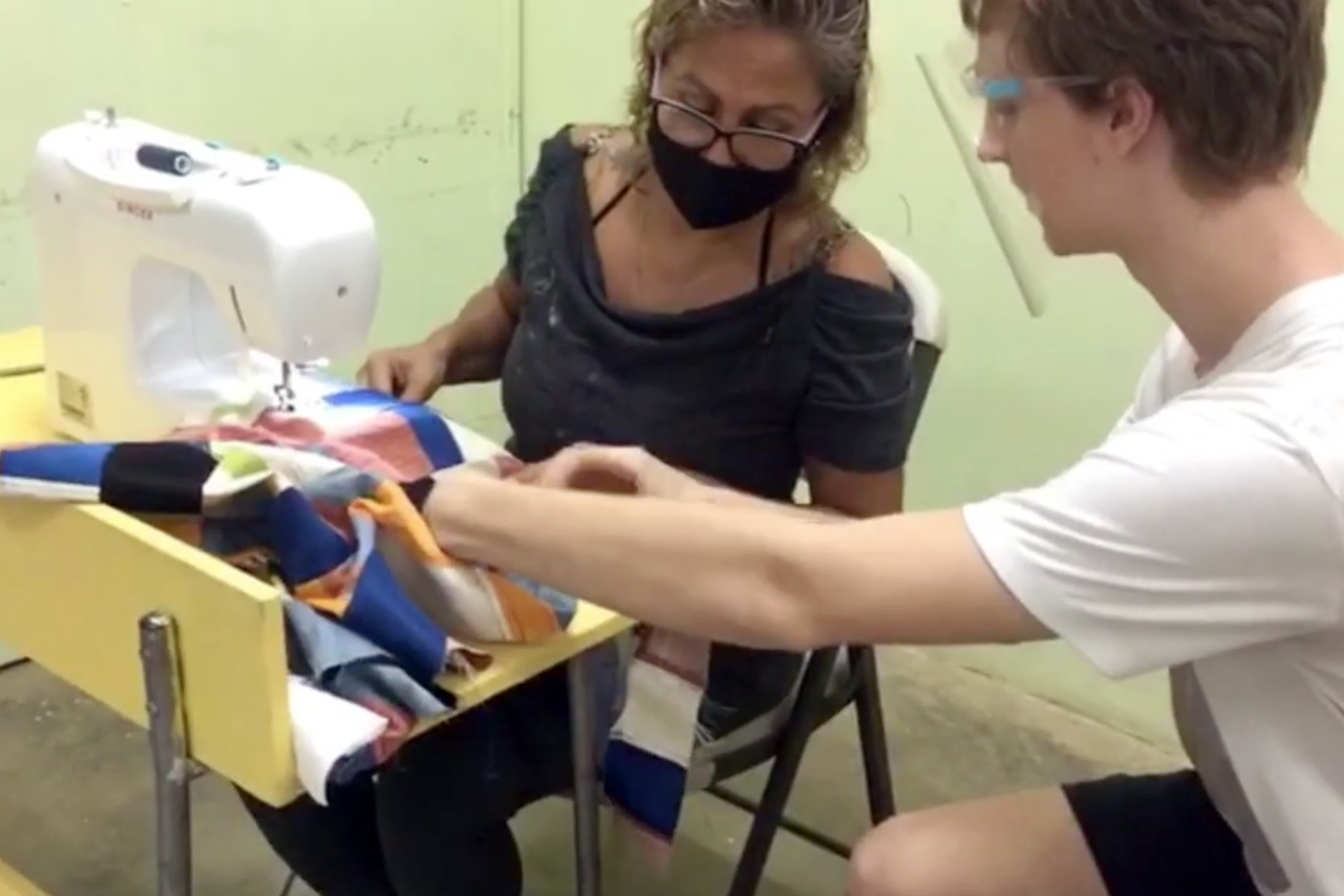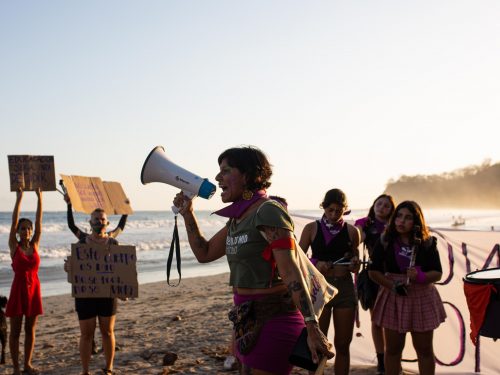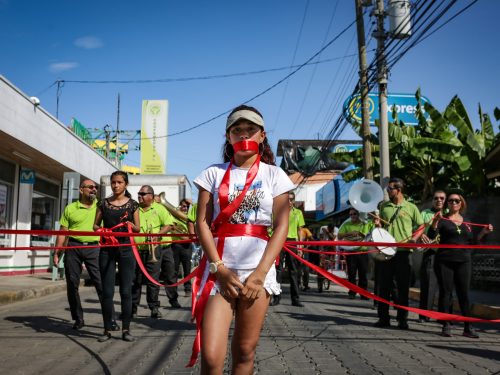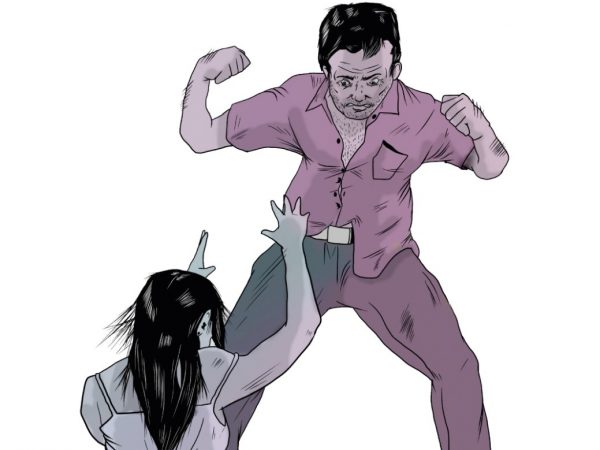
Aydelina is from Guanacaste and before COVID-19, she did cleaning work in some cabins in Santa Cruz. When the health crisis began, she lost her job, but her fighting spirit remained intact.
Looking for options to make money for her household, she learned about free courses to learn how to sew handmade bags.
“With this whole pandemic situation, I’m left unemployed and one day on Facebook I saw a CEPIA post. I already knew who they were and what they did, but it was the first time that I felt a desire to participate,” said Aydelina Narvaez Lopez.
I couldn’t miss the opportunity to learn for free how to make and sell the bags,” she added.
CEPIA is a Guanacastecan non-profit organization that has been supporting communities in Huacas and surrounding areas for more than 10 years. Their contribution reaches people in the area through education and psychological support programs designed for boys and girls, and now also for women.
Being part of the Huacas community, Aydelina was encouraged to learn a new trade.
Like her, 20 other women came to this organization in July hoping to receive training and start a new stage in their lives as entrepreneurs during COVID-19 times.
Another NGO that activated a plan to help women during the pandemic is Grameen, an organization dedicated to financing entrepreneurship led by women in small communities.
Grameen launched training sessions focused on the current situation. The organization has granted microloans to a total of 450 women in Guanacaste, before and during the pandemic.
According to data from the Continuous Employment Survey, from the National Institute of Statistics and Censuses (INEC- Instituto Nacional de Estadística y Censos), women are one of the groups most affected by job loss during the health crisis that plagues the country.
Female unemployment in Costa Rica reached 30.2% (269,000 women) in the second quarter of 2020, compared to 20.7% of men, data from INEC showed.
In the Chorotega region, unemployment went from 12.7% in the second quarter of 2019 to a rate of 29.8% in the same period of 2020.
As of June of this year, women in the region reported a rate of 37.8% and men 25.1%.
From the perspective of Grameen and CEPIA, entrepreneurship is possible in Guanacaste, even in difficult times. “Due to being farther away from highly populated cities like San Jose, and due to being more rural, the communities we serve in Guanacaste can continue to undertake business ventures,” added Grameen’s credit manager, Hazel Jimenez.
Self-Employment in Times of Crisis
CEPIA trains women and teaches them how to market their products. “This is not just teaching the girls to make the bags and that’s it. We also look for where and how they can sell them,” highlighted CEPIA’s executive director, Maria Jose Cappa.
Aydelina and 20 other women are waiting for the NGO to give them the green light to sell their products.
“It’s important that the bags be of good quality and you have to understand that they carry the identity of Guanacaste since we expect to sell them to tourists. The idea is that the girls can work with this product and improve their income.”
The project is directed toward women only because it developed from the heart of another one of the organization’s initiatives, Círculo de Mujeres (Circle of Women). This program seeks to empower the women of the Guanacaste’s communities through trainings built on the vision of female entrepreneurship and the importance of women in society.
When I started with bags, it was like finding myself again as a woman. Learning and working like this with what I have studied satisfies me a lot. Today I can say that I feel like and I consider myself a professional in the production of handmade bags,” added Aydeina Narvaez.
Aydelina also wants to capture a little of the province’s culture in each product. “The bags clearly look Guanacastecan. I always try to put more color on them, because that’s what Guanacaste is like,” Lopez added.
Narvaez’s goals go beyond the province’s territory. “With everything that I learned and with the excitement that I feel, I’m already thinking big. I want to see my bags all over the country and reach other parts of the world,” she said.
Each bag that Aydelina makes costs approximately ¢3,000 (about $5) to put together, and its sale price is around ¢9,000 (about $15).
Maria Jose Cappa, from CEPIA, commented that since its inception, the institution has worked to meet the needs that arise in Guanacaste’s communities, so they will continue to look for solutions to minimize the impacts of this crisis. The institution also distributes basic food baskets and provides psychological support to adults.
The pandemic also sparked Grameen’s interest in further supporting women in the province.
Since March, the organization has been training small groups of women virtually regarding the risks and benefits of entrepreneurship during the pandemic.
“In my small business, I started with an amount of ₡200,000 (about $350) and now I sell fine perfumes, children’s clothing and beauty accessories, even when we are in these times of pandemic,” said Marcela Flores, one of the women from Guanacaste who started a business and received financing from Grameen.
And the nice thing is that I meet with other girls who are achieving business ventures in the same way,” she added.
The communities in Guanacaste that Grameen serves are: Cañas, Liberia, Abangares, Bagaces, Santa Cruz, Huacas, Matapalo and Playa Potrero.
This organization only finances women from small communities in the region through microloans. The ultimate goal is for these resources to be used for them to start a business, generate their own income and in the future, be able to employ other women.
The objective of Grameen in Costa Rica is to strengthen female entrepreneurship in small communities, because we have seen that this not only generates income for the beneficiaries, but also stimulates the economy of each community,” explained the organization’s credit manager, Hazel Jimenez.
The organization works alongside other non-governmental organizations in Guanacaste, such as Futuro Brillante (Bright Future), Abriendo Mentes (Opening Minds) and CEPIA, to help more women realize their dream of entrepreneurship.
In addition to launching training sessions, Grameen extended the time that the entrepreneurs have to repay the loans, to mitigate the impact during the months that the pandemic lasts. Likewise, the organization is assessing other actions to help those who can’t pay for everything.







Comments